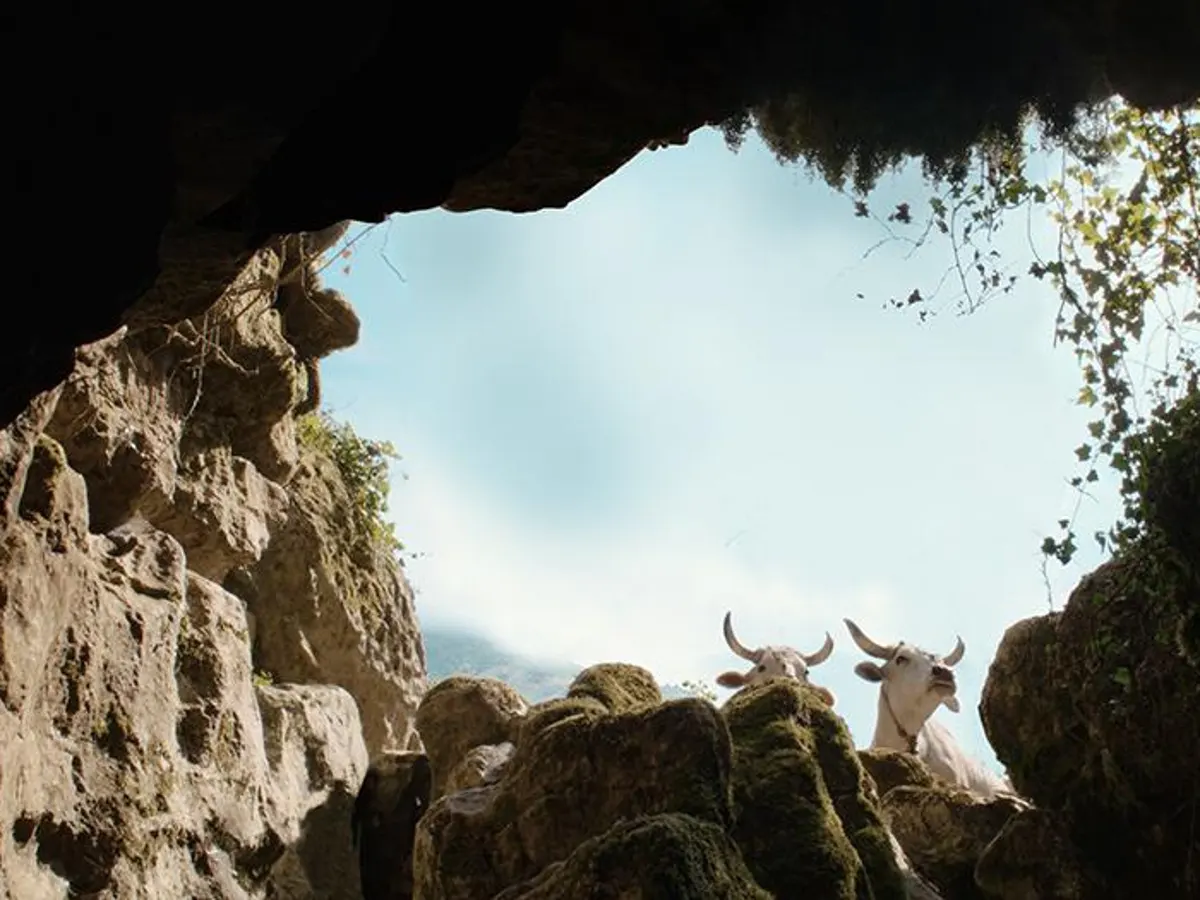




Dir.: Michelangelo Frammartino; Documentary with Paolo Cossi, Jacobo Elia, Denise Trombin, Nicola Lanza; Italy/France/Germany 2021, 93 min.
Milan born director/co-writer Michelangelo Frammartino is not in a hurry: more than a decade after Le Quattro Volte his languorous essay on nature and the limited influence of humans, is a re-staging of the 1961 speleogical expedition, the doco-fiction hybrid paints a rather sober picture of the Abisso del Bifurto at the Pollino plateau in Calabria, where the then – third largest cave of nearly 700 m was discovered and meticulously measured.
Once underground, there is only artificial light: the team’s helmet lamps illuminate the usual detritus: old newspapers with recognisable idols such as JFK and Sophia Loren their images going up in flames to provide firelight for those men and women toiling meticulously in the abyss. It being Italy, a football match takes place underground, the two players overground unable to keep the ball away from the cave entrance. Other team members snooze, with a horse poking his nose into their tent.
In the nearby village, locals gather round a TV screen as if it was a cinema: the fuzzy black-and-white picture shows the 24-story high Pirelli building in Milan, and some crackly old dancing numbers. Strangely enough one of the old villagers, a man in his eighties, steals the show. He is a bystander collecting wood borne by his donkey to the hut where he lives with other farm workers. Somehow we expect him to be there forever (like the old boy in Quattro Volte), even when the film crew is long gone – but nature intervenes. The men transport him to his home where a doctor arrives later on another donkey. We’re prepared for the grim outcome reminding us of our own mortality and the fragility of life.
Meanwhile in the cave, the speleologists tool their way down, encumbered by ropes and other instruments. Afterwards they sit in the sunshine copying their measurements on old-fashioned writing paper with a quill. It all ends in a puddle in a cul-de-sac, without fanfares and celebrations.
DoP Renato Berta lets his camera glide lovingly about the landscape and the animals, showing the descent like in a glowing string of beads. Somehow we cannot take it all seriously, the animals and farmers overground seem much more real than the heroes with their determination to discover and measure. If there is any message, it is that so-called progress is very limited – as is fame. The age-old railway which brought the climbers to their destination, and the their motley collection of tents remain in the memory, along with the old man who has ‘sneaked’ in grabbing the limelight as a major attraction. Progress is measured by human patience and observance of nature, records of all kinds are fleeting.
AT SELECTED ARTHOUSE CINEMAS FROM FRIDAY | SPECIAL JURY PRIZE VENICE 2021